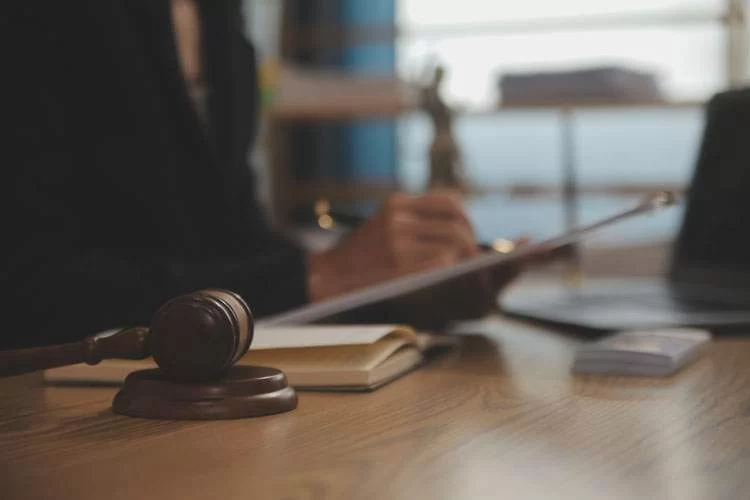- Understanding Wrongful Eviction
- The Importance of Legal Representation
- Common Causes of Wrongful Eviction
- Steps to Take if You Face Wrongful Eviction
- How an Eviction Lawyer Can Help
1. Understanding Wrongful Eviction
Wrongful eviction occurs when a landlord unlawfully removes a tenant from a rental property without following the proper legal procedures. This can involve forceful removal, threats, or failure to provide proper notice. Tenants who are wrongfully evicted may be entitled to compensation for damages, emotional distress, and even legal fees. It is important for tenants to understand what constitutes wrongful eviction and how they can protect themselves from such practices.
In the United States, tenants have legal protections that prevent landlords from evicting them without due process. This includes providing appropriate notice, following court procedures, and refraining from actions like changing locks or turning off utilities to force a tenant out. Without legal representation, tenants may find it difficult to navigate these complex issues, which is where a knowledgeable lawyer comes into play.
2. The Importance of Legal Representation
Having legal representation in a wrongful eviction case is crucial. An experienced eviction lawyer can help tenants understand their rights and offer expert guidance throughout the process. Legal representation ensures that the eviction is handled according to the law and that the tenant receives fair treatment. A lawyer can also help tenants avoid retaliatory evictions, which are illegal in many jurisdictions.
Without proper legal counsel, tenants may unknowingly give up their rights or fail to respond to eviction notices correctly. A lawyer specializing in landlord-tenant disputes can provide legal strategies to fight against wrongful eviction claims. Furthermore, a lawyer can assist with filing complaints, attending court hearings, and negotiating settlements to avoid a lengthy legal battle.
3. Common Causes of Wrongful Eviction
There are several reasons why a wrongful eviction may occur. Some of the most common causes include:
3.1 Failure to Follow Legal Procedures
One of the most common causes of wrongful eviction is when a landlord fails to follow the proper legal procedures. This includes not providing adequate notice or failing to go through the appropriate court channels to evict a tenant.
3.2 Discrimination or Retaliation
Landlords are prohibited from evicting tenants based on discrimination or retaliation. For example, a landlord cannot evict a tenant because of their race, religion, or sexual orientation. Similarly, retaliatory evictions, such as evicting a tenant for filing complaints about unsafe living conditions, are illegal.
3.3 Illegal Lease Violations
Sometimes, landlords may evict tenants for reasons that are not in violation of the lease agreement. If the tenant is not breaking the terms of the lease, the eviction could be considered wrongful.
3.4 Failure to Maintain Habitability
If a landlord fails to maintain the rental property in a habitable condition, such as not providing adequate heat, water, or electricity, and tries to evict the tenant, this could be grounds for a wrongful eviction claim.
4. Steps to Take if You Face Wrongful Eviction
If you believe you are being wrongfully evicted, it is important to take immediate action to protect your rights. Here are the steps you should follow:
4.1 Document Everything
Start by documenting all interactions with your landlord, including written notices, emails, and any communication regarding your eviction. This will serve as important evidence if you decide to pursue a legal case.
4.2 Understand Your Lease Agreement
Review your lease agreement to ensure that you are not in violation of any terms. If your landlord is attempting to evict you for a reason that is not outlined in the lease, this could strengthen your wrongful eviction claim.
4.3 Contact a Lawyer
Contacting a lawyer is one of the most crucial steps in handling a wrongful eviction. A lawyer can help you understand your rights and the best course of action to take. They can also represent you in court if necessary.
4.4 Respond to Eviction Notices
If you have received an eviction notice, it is essential to respond promptly. Ignoring the notice or failing to attend a court hearing can result in the eviction being finalized in favor of the landlord.
5. How an Eviction Lawyer Can Help
An eviction lawyer plays a vital role in protecting tenants from wrongful eviction. Here’s how a lawyer can help:
5.1 Evaluating the Case
A lawyer will first evaluate the case to determine whether the eviction is indeed wrongful. They will review all evidence and identify any violations of tenant rights or legal procedures.
5.2 Defending Against Eviction
If the eviction is determined to be wrongful, the lawyer will file the necessary paperwork to prevent the eviction from taking place. They may also represent you in court and present evidence on your behalf.
5.3 Negotiating a Settlement
In some cases, an eviction lawyer may be able to negotiate a settlement between the tenant and landlord. This can include securing financial compensation, returning deposits, or allowing the tenant to remain in the property.
5.4 Protecting Tenant Rights
Most importantly, an eviction lawyer will ensure that your rights as a tenant are upheld. They will ensure that landlords adhere to all laws and will fight for the compensation and justice you deserve if wrongful eviction occurs.
Wrongful eviction can be a stressful and overwhelming experience, but with the right legal representation, tenants can defend their rights and prevent unfair treatment. If you find yourself facing a wrongful eviction, don't hesitate to seek help from a skilled eviction lawyer. At Fred Miller Lawyer, we are committed to helping tenants protect their rights and achieve fair outcomes in eviction cases.


 o'malley langan
o'malley langan kulp law firm
kulp law firm 3033 south parker road
3033 south parker road blevins & hong pc
blevins & hong pc demayo law offices l.l.p
demayo law offices l.l.p gabriel castellanos lawyer
gabriel castellanos lawyer